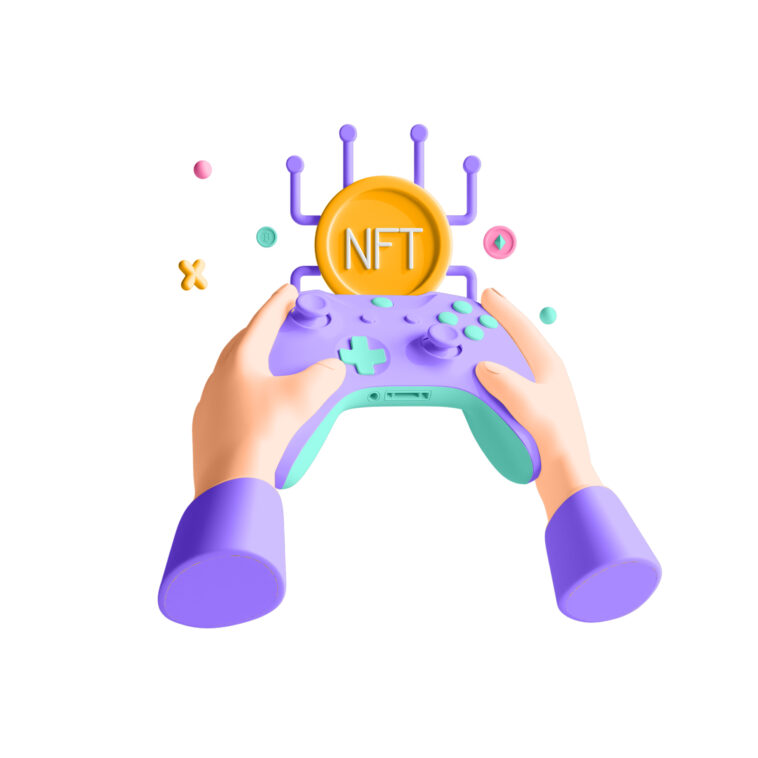Blockchain games have drawn players in with their ability to acquire digital assets that can be traded for monetary value and used to shape gaming outcomes. Furthermore, in-game marketplaces allow gamers to make money and reap rewards.
However, these games still face several hurdles – from reaching mass audiences effectively to being poorly designed.
Decentralization
Traditional gaming platforms hold their assets and data on a central server that only a select few have access to, making them vulnerable to hackers who exploit vulnerabilities in security systems. Blockchain games provide players with decentralized storage solutions for game data and digital assets – some being completely decentralized while others offering hybrid models whereby assets may be traded between servers via open marketplaces.
These features allow players to monetize their gaming experience and take real ownership of in-game assets, participate in transparent virtual economies, and become stakeholders of community-driven ecosystems – something previously unseen in centralized gaming world. This opens up numerous possibilities for both developers and players.
Blockchain games offer promise as an innovation in gaming, yet still must overcome some key hurdles. Of particular concern is scalability; when a blockchain game becomes popular it can cause network congestion with costly per-transaction fees incurred by players; making gaming prohibitively expensive as a hobby for many people.
To avoid such issues, developers should utilize a blockchain that is optimized for gaming with a fast transaction rate and balanced in-game economy. Axie Infinity boasts such an ecosystem which utilizes two cryptocurrencies – AXS and SLP – where AXS can be earned via PvP matches while SLP rewards can be received when unlocking certain adventure mode levels.
Another risk associated with in-game items is theft. While blockchain provides some protection, hackers could still gain entry and steal items – for instance by accessing databases containing player private information – leading to legal troubles and distancing players from trust in games.
Scalability
Blockchain games face one major hurdle with regards to scalability: many gamers worry that blockchain technology won’t be able to handle the high volume of transactions required in video games. This concern is justified; otherwise it would result in slower transaction processing times and higher gaming costs. Luckily, there are various solutions for this problem available to them including layer 1 and layer 2 solutions.
Blockchain games are an emerging subgenre of video game that utilizes blockchain to generate unique in-game assets and rewards that can be traded via open marketplaces for other items or real cash, providing decentralized, fair, transparent ecosystems – offering players a more personalized and customizable gaming experience than ever before.
The blockchain is an immutable digital ledger with features such as programmability, interoperability, verifiability and accessibility – making it ideal for gaming platforms that use cryptocurrency and digital assets such as Etherum. Furthermore, blockchains offer unparalleled levels of transparency which allow players to see exactly where their money is being spent while making it harder for bad actors to manipulate the system.
Blockchain gaming stands out from traditional games with its decentralized model by giving players authentic ownership over their in-game assets, so that they are no longer dependent on developers to maintain the game they’ve invested time and energy into creating. Furthermore, players can bring these assets between games for use across different gaming universes; this provides significant advantages over traditional titles where developers dictate rules and incentives for play.
Blockchain games differ from traditional video games in that they use decentralized models to allow players to earn and spend cryptocurrency across multiple games. This helps lower barriers for new gamers and increase player participation. Furthermore, blockchain games may improve gaming ecosystem integrity by enabling players to verify identities and eliminate bad actors; one example being how 0xBattleGround uses blockchain technology to help gamers prevent fraudulent activities.
Security
Many games utilize blockchain platforms to store and track in-game earnings and non-fungible tokens (NFTs), enabling players to securely invest their game and earn real money while enjoying long-term benefits from gaming experiences. Blockchain technology guarantees these transactions remain safe; immutable blockchains cannot be altered or deleted; rather, a new hash code must be generated each time an addition or amendment must be added or made; making it hard for cybercriminals to hack blockchains.
Blockchain games offer players additional protection by using encrypted ledgers to store player accounts. Traditional online video games store information on centralized servers that could potentially be compromised by cybercriminals; blockchain games do not have this problem – making them ideal for games utilizing in-game currencies and assets, which often don’t return.
As well as protecting their private keys, gamers should also store their cryptocurrency in a safe wallet like MyEtherWallet or Ledger Nano S. This will ensure their in-game earnings and virtual items remain protected while also guarding them from scams or any potential issues that might arise.
Blockchain technology also makes gaming more transparent and fair; community members can participate in game decisions via blockchain games; this feature would otherwise be impossible in centralized gaming settings. These features contribute to their popularity; another reason why blockchain gaming is growing.
Blockchain-based gaming can be an excellent way to increase revenue and user engagement. Not only can users earn in-game coins, but they can also purchase various gaming-related goods and services. These purchases allow players to unlock extra content, customize characters or gain an edge against other players while providing an enjoyable way of passing time or socializing with fellow gamers.
The blockchain offers game industry transparency and accountability that’s vital in creating an equitable gaming experience. While other industries such as music and finance have adopted it rapidly, gaming industry adoption of blockchain has been slower. However, many developers have begun working on projects that make playing blockchain games more accessible to mainstream gamers.
Smart contracts
Smart contracts in blockchain games provide gamers with an economy in which they can trade items and currency freely without oversaturating markets or engaging in unfair trade practices. Smart contracts also give developers freedom to monetize their games without paying third-party services for services they no longer require.
Blockchain technology used in these games offers unparalleled security and transparency to all players. Utilizing sophisticated data encryption techniques, it protects databases against hackers accessing them to steal player information or destroy game assets. Plus, its decentralized nature means no one server can be targeted – hackers love attacking centralized servers as they’re easier targets!
Blockchain games not only offer transparency, security, and democratization but can also offer players new revenue models while giving them complete ownership over their in-game assets. According to one survey conducted on gamers choosing blockchain games over traditional ones.
Some of these new business models include Play-to-Earn (P2E) and in-game Esports. Both could revolutionize the gaming industry; however, their implementation in blockchain games poses certain difficulties due to mainstream gamers not wanting to devote the necessary time and energy in understanding its technology.
Another obstacle lies in the difficulty associated with onboarding blockchain games onto traditional gaming platforms, particularly for new users. The process requires several complex steps such as downloading the Metamask Chrome extension wallet and creating an address – something which may be acceptable to experienced crypto enthusiasts but can prove confusing for mainstream gamers.
Blockchain games have rapidly increased in popularity over recent months. Many major gaming companies are beginning to support them; however, most gamers still consider them niche offerings; it remains likely that mainstream gamers will eventually adopt these innovative technologies.



